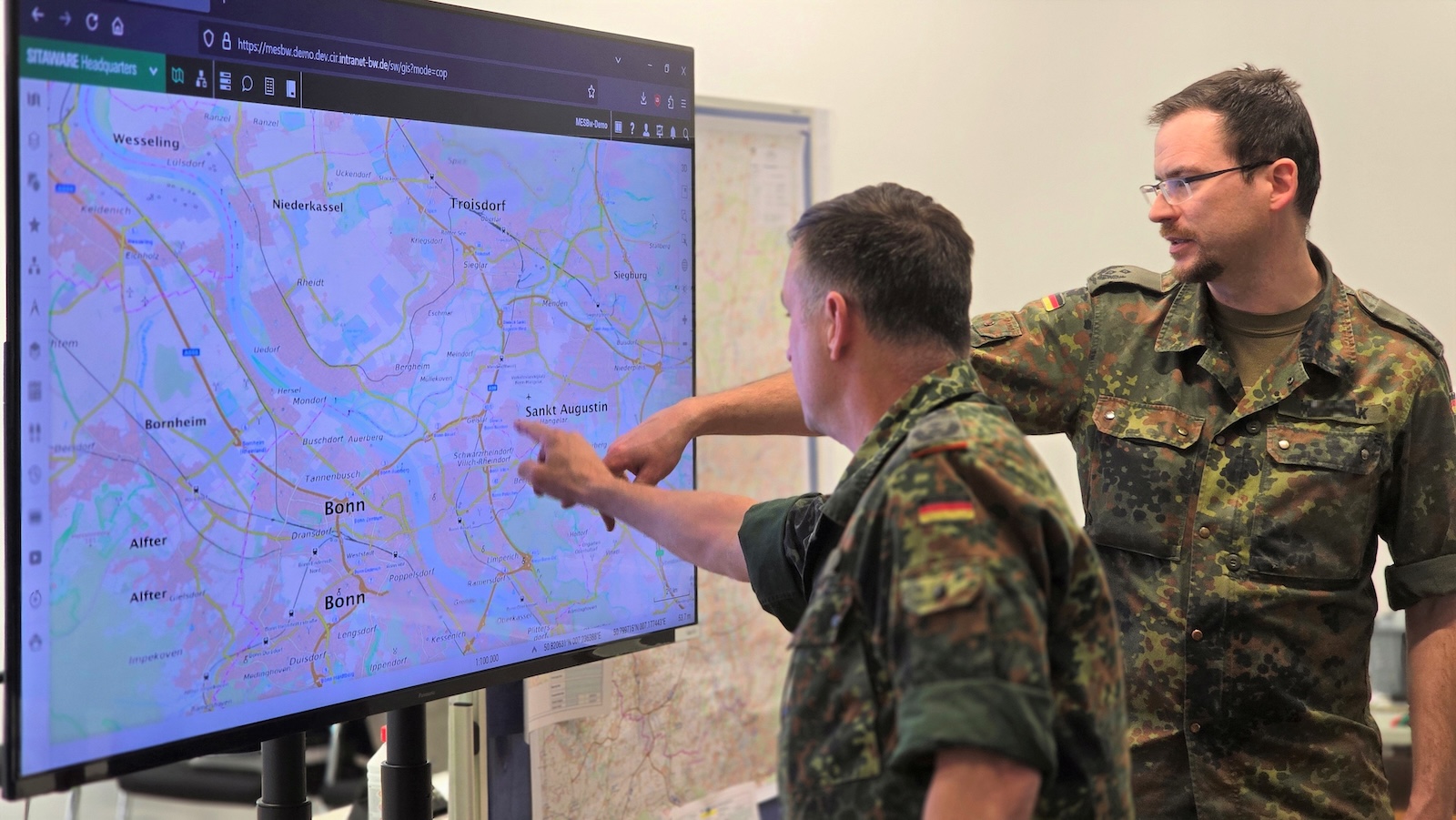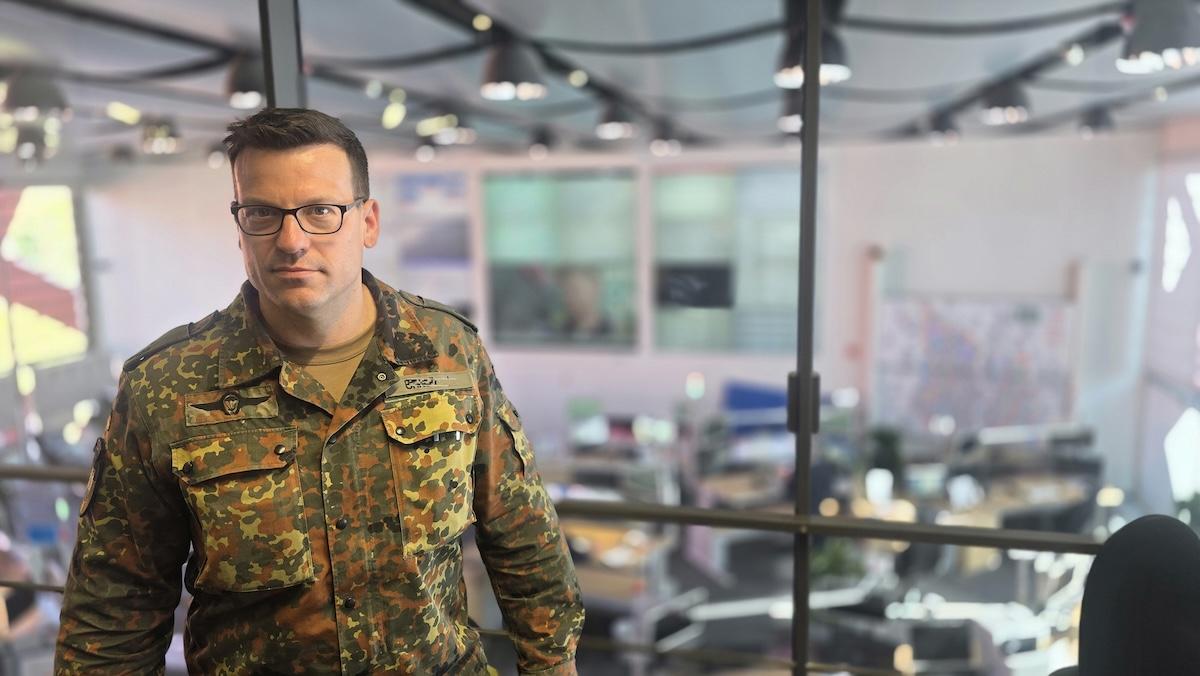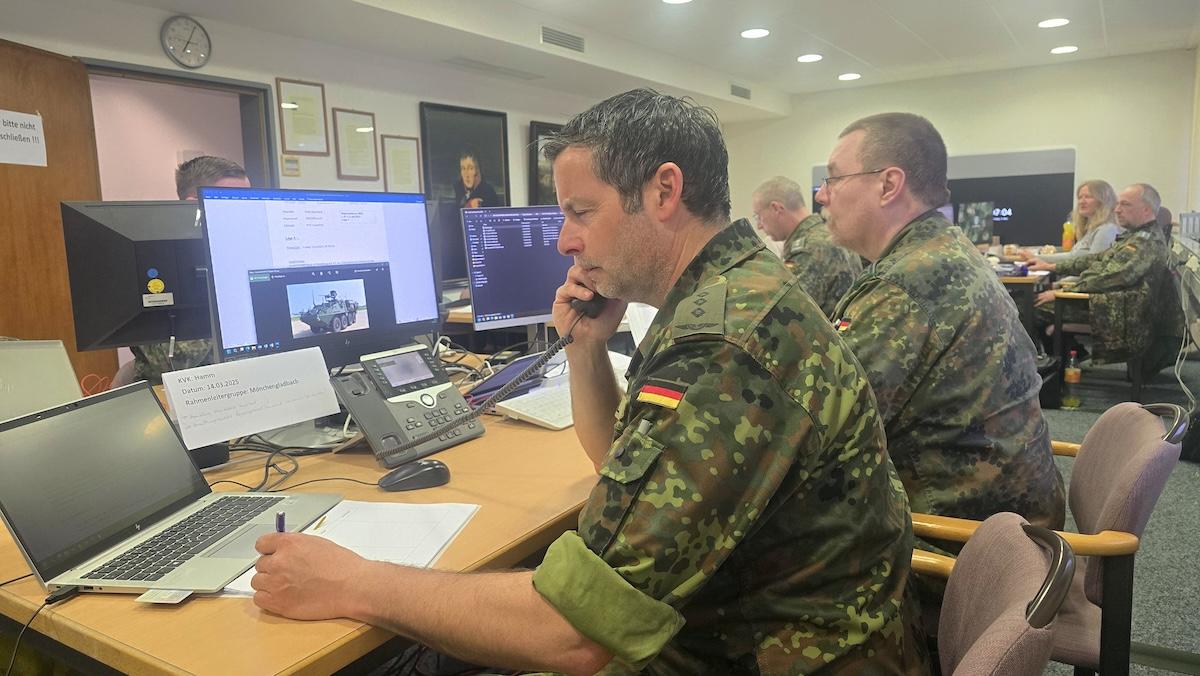Get the weekly SPARTANAT newsletter.
Your bonus: the free E-Book from SPARTANAT.

In all five administrative districts, around 60 liaison commands trained for a variety of emergencies: an initially manageable severe weather situation escalates, allied forces need support, and an evacuation of individuals becomes necessary.
Stress test for almost 400 soldiers in North Rhine-Westphalia: A storm in the region persists, dikes along a river are waterlogged, a flood disaster looms. Civil forces are over-stretched, 100 soldiers are needed ASAP to help build a dike. Meanwhile, allied forces are relocating to the NATO eastern flank, traveling in long convoys across country. One of the 50-ton US military vehicles has broken down, the highway has been closed by the police, and on-site repairs are impossible. And now? Phones are ringing in the liaison commands, emails are coming in, new events are constantly being noted on situation maps.
Because the five district and 54 county liaison commandos in North Rhine-Westphalia are responsible precisely for such scenarios. The State Command North Rhine-Westphalia practiced with these "regional outposts" on recent Fridays. Starting on March 14, 2025 in the Arnsberg administrative district, it continued in the Düsseldorf and Cologne administrative districts, and the exercise will end on April 4 in the Münster and Detmold administrative districts.
Brigadier General Hans-Dieter Müller, Commander of the State Command North Rhine-Westphalia, was satisfied with the exercise results and emphasizes the importance of the liaison commands: "These soldiers are closely connected to the civilian actors in their region, know every corner of their homeland well, and are in close exchange with both municipal politicians and blue light organizations involved in disaster relief. In a real crisis, these short distances are crucial. In addition, my staff and I at the State Command in Düsseldorf receive an image of the local situation through the liaison commands. The liaison commands are my eyes in the field."
Background: Support services in a federal state - such as during a flood disaster or the corona pandemic - are coordinated by the respective state command. The liaison commands provide information about the situation directly in the affected region. The soldiers advise the counties, independent cities, and districts on how the Bundeswehr can help in a disaster.
Back to the breakdown of the US Armed Forces: It has now been determined that the vehicle must be towed, accommodation is needed for the soldiers. The reservists in the Warendorf liaison command coordinate, constantly looking at the map: Is there a barracks nearby? Which civilian towing service is in the area?
They also follow the floodwaters closely. At the end of the exercise, the situation escalates again: a nursing home is threatened by the floods and must be evacuated.

These so-called "situations" in the exercise are fictitious, but not unrealistic. Sergeant Major B. (43) trained with the Cologne district liaison command: "I was on duty during the flood in 2021." The 43-year-old did not operate heavy equipment but went to the Cologne district government. Here, the liaison command has an office in the hallway of Department 22 - Hazard Prevention. Sergeant Major B.: "We started operations around 7:00 a.m., worked 24 hours a day in shift work for the following days." In moments like these, it is crucial that the players know each other. "We regularly meet with the THW or the disaster relief organization. We also conduct on-site inspections of critical infrastructure together with civilian partners."
Networking, getting to know each other, knowing heads before the crisis - that is the mission of these reservists. With their knowledge and contacts, they are the link between the civilian and military sides.
Brigadier General Müller summarizes: "I have met highly motivated soldiers. Many of them do not know the end of duty, whether they are wearing the uniform at the moment or not. And the interest on the civilian side is also growing. I hear repeatedly that representatives of the city or district government visited the exercise. Great!"

INFO:
The liaison commands advise civilian authorities on security issues and assistance. When activated, they are ready for deployment around the clock. Each command consists of 10 duty posts and can work 24/7 in shift operation. While activated, civilian professions are suspended. Former non-commissioned officers with portepees and officers - that is, from the rank of sergeant upwards - are sought for the five district and 54 county liaison commands. The point of contact for this service is the State Command North Rhine-Westphalia: 0211-959 3515 or [email protected]
SPARTANAT is the online magazine for Military News, Tactical Life, Gear & Reviews.
Send us your news: [email protected]
Ad
similar
Get the weekly SPARTANAT newsletter.
Your bonus: the free E-Book from SPARTANAT.


